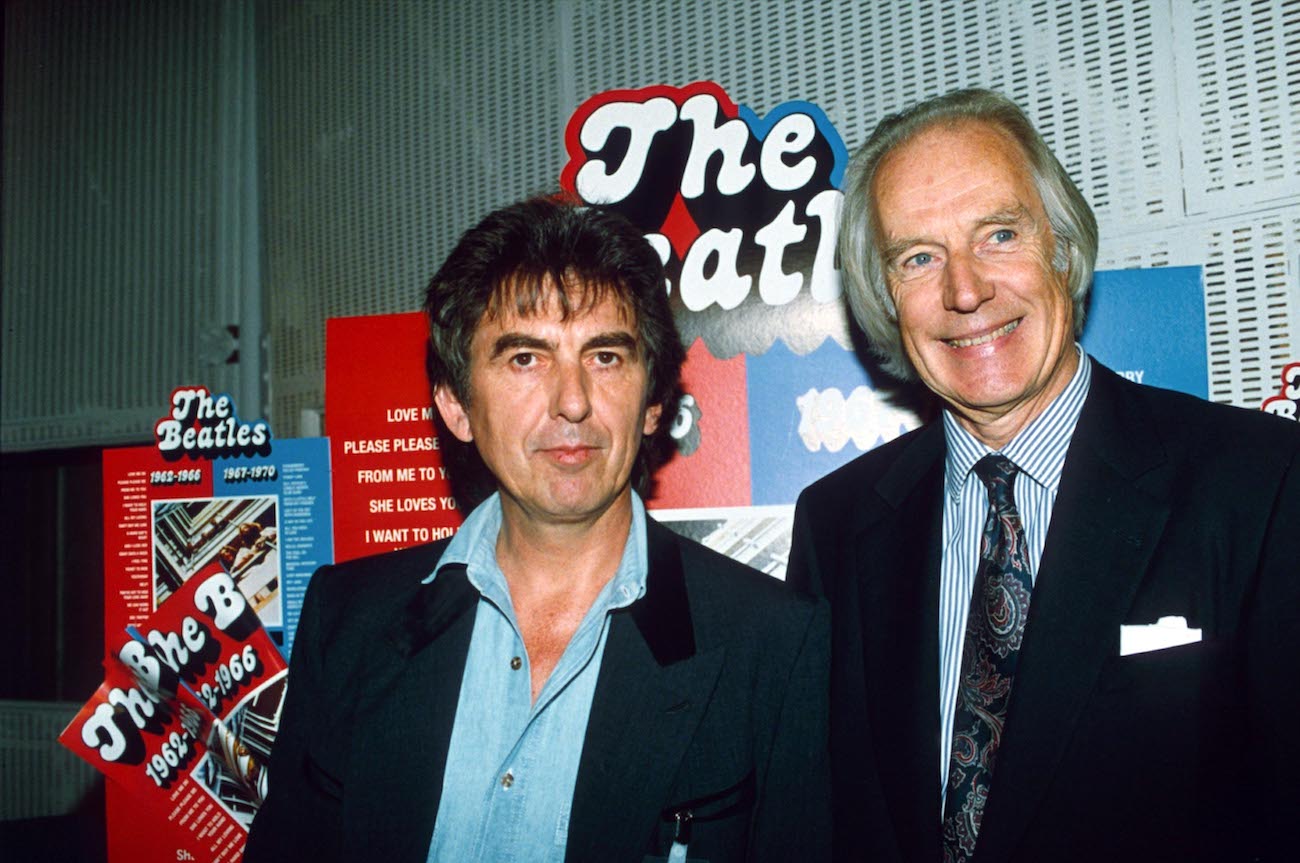
The Beatles’ Producer Said He Knew George Harrison Was the Kind of Person Who’d Always Help Friends in Need
The Beatles‘ producer, George Martin, said he knew George Harrison was the kind of person who’d always help friends in need. George would’ve gladly given someone his last penny; he was that generous.

The spiritual Beatle learned generosity from his parents
George got his generosity and many more positive personality traits from his parents. Despite not having much money, Harold and Louise Harrison ensured their four children knew that they could do anything they wanted as long as they were upstanding citizens and valuable members of society. Being kind was also paramount.
In Joshua M. Greene’s Here Comes The Sun: The Spiritual And Musical Journey Of George Harrison, George’s sister, Louise, said, “Even though there wasn’t much money, Mum made sure we knew we weren’t peasants, that we came from educated stock and had great potential in life.
“She taught us to think, to question things, to always be kind, never kowtow to big shots or lord over the lowly. We were never to cringe in fear but neither were we to become bullies toward anyone. And we took care of one another. If there was only one apple, we’d each get a quarter.”
In Graeme Thomson’s George Harrison: Behind the Locked Door, Louise said George “was always the one who tried to please. When the fire needed more coal, he would always say, ‘Mummy, I’ll do it. Let me get the shovel.’ Or, when we’d be going to church, George would polish everyone’s boots.”
Thomson wrote, “Even at this early age he ‘didn’t suffer fools gladly,’ yet he already possessed an acute moral compass when it came to what he saw as the mistreatment of others.”
“If he saw anyone being bullied George tended to step in,” said a schoolmate, Rod Othen. “He didn’t like people bullying people.” George was happy to sit next to the smelly kid.
Even when George and The Beatles achieved fame, their personalities stayed intact. So, George never lost his generosity. It only strengthened.
George Martin said George Harrison was the kind of person who’d always help friends
It quickly became evident to all who met George that he’d always help friends in need. The Beatles’ producer witnessed it. In his book, Summer of Love: The Making of Sgt. Pepper, Martin wrote that George was a very generous person.
“George always had a very pragmatic streak,” Martin wrote. “He never let the so-called glamour of show-business seduce him. He always saw through phony people very quickly.”
Martin continued, “He was the practical one, the one who could mend the amplifier or change the fuse. And he is one of the most generous people I know.
“If you were a friend of George in need, he would reach into his pocket and give you his last penny. Equally, if it were a matter of principle, he would defend you to the last. If ever I were in trouble, George Harrison is the kind of person I would like to be able to turn to.”
Despite the fact that Martin constantly pushed his songs aside in The Beatles, the producer still felt that George had his back.
George loaned rent money to help friends Al Aronowitz and his wife
Once he became famous and wealthy, George made bigger sacrifices for those he loved. His intentions were always honorable and humble.
George repaid his parents for all they’d done for him by giving them enough money for Harold to retire. He liked the money and lived like any other rock star, but halfway through the 1960s, he realized there was something better than fame and wealth. God-conscious was all he truly wanted to be, and it strengthened his generosity. Spirituality taught him that loving those closest to him brought him closer to God.
In 1970, George and his wife, Pattie Boyd, visited journalist Al Aronowitz and his wife, who was slowly losing a painful five-year battle with cancer, for Thanksgiving. Despite her illness, she cooked the rock star and his wife a full turkey dinner. Greene wrote that it was the least she could do to thank George for “loaning” them the money to rent their home.
“Al was uncertain whether George gave the money because his own mother had died of cancer earlier that year or because he was grateful that Aronowitz had introduced him to his hero, Bob Dylan. Whatever George’s reason, Al said the house money was ‘an exhibition of saintliness unequaled by any rock superstar I knew,'” Greene wrote.
“Part of George’s charm is that he always feels so inadequate to repay the world for what the world has given him,” Aronowitz said. “Acts of kindness have become an art with him.”
George’s sister added, “An art, yes, that’s how it was with him. He would pay people’s hospital bills and do other random acts of kindness—not so that people would think well of him but simply because he believed kindness should be done in the world.
“Okay, he was on a spiritual search, but he was a good human being. Our mum always taught us to be careful about judging good or bad. Her criterion was, ‘Does this harm anyone?’ If so, then it was wrong, and George lived by that.”
George continued to help friends throughout his life. He helped his friends in the Hare Krishna Temple set up a temple in London. He produced the devotees’ album, The Radha Krishna Temple, and published their guru, Bhaktivedanta Swami, a.k.a. Prabhupada‘s book, KRSHNA Book.
When Ravi Shankar told him about a humanitarian crisis in Bangladesh, George immediately organized the Concert for Bangladesh. In the late 1970s, George helped friends in Monty Python by funding Life of Brian after their producers backed out.
George didn’t always have to organize the first benefit concert of its kind, produce a controversial film, or send a person tons of money to be kind and caring to those he loved. Little gestures of generosity went a long way. Part of George’s legacy lies in his acts of kindness.


